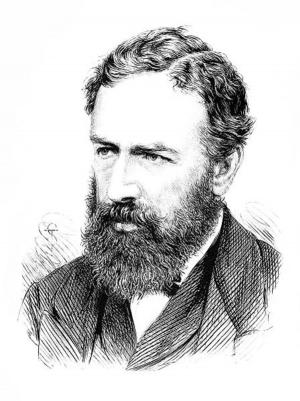| Author: | Jeremy Bentham, Timeless Books: Editor | ISBN: | 1230000468268 |
| Publisher: | www.WealthOfNation.com | Publication: | June 4, 2015 |
| Imprint: | Language: | English |
| Author: | Jeremy Bentham, Timeless Books: Editor |
| ISBN: | 1230000468268 |
| Publisher: | www.WealthOfNation.com |
| Publication: | June 4, 2015 |
| Imprint: | |
| Language: | English |
The book has an active table of contents for easy access to each chapter of the following titles:
1. LETTERS TO LORD GRENVILLE, ON THE PROPOSED REFORM IN THE ADMINISTRATION OF CIVIL JUSTICE IN SCOTLAND – JEREMY BENTHAM
2. ANALYSIS OF THE BILL CALLED LORD ELDON’S BILL – JEREMY BENTHAM
3. SUMMARY VIEW OF THE PLAN OF A JUDICATORY, UNDER THE NAME OF THE COURT OF LORDS’ DELEGATES – JEREMY BENTHAM
Jeremy Bentham was a British philosopher, jurist, social reformer and the founder of modern utilitarianism. He is in the row with the greatest thinkers Adam Smith, John Stuart Mill, John Keynes, John Locke, and Alfred Marshall. Their thoughts had strong influence on building the foundation of the United States and its endeavor of open society.
Jeremy Bentham invented the axiom of the greatest happiness of the greatest number. His writings emphasised the pursuit of happiness and freedom and became popular in the new republics of America and the other counties.
Jeremy Bentham published Scotch Reform in 1808. Bentham argued a number of proposals on the formation of English and Scottish appeal courts, the role of juries, the value of written, and oral testimony in the book as a sequence of letters addressed first to Lord Grenville, the First Lord of the Treasury, Lord Eldon, and Lord Chancellor. The book dealt with a wide range of topics of civil law procedure. Bentham also discussed reasons for his interest in the subject and a comprehensive outline of his aims and objectives.
Jeremy Bentham’s work produced great influence on utilitarianism, philosophy, jurist, and economics. His view became widely recognised as the foremost philosophical voice of political radicalism and his influence has been felt in nearly every field of the humanities and social sciences.
This book is one of the most important ones about appeal courts, role of juries, oral testimony and its practice by Jeremy Bentham, one of the greatest thinkers of modern economics and philosophy on the planet.
The book has an active table of contents for easy access to each chapter of the following titles:
1. LETTERS TO LORD GRENVILLE, ON THE PROPOSED REFORM IN THE ADMINISTRATION OF CIVIL JUSTICE IN SCOTLAND – JEREMY BENTHAM
2. ANALYSIS OF THE BILL CALLED LORD ELDON’S BILL – JEREMY BENTHAM
3. SUMMARY VIEW OF THE PLAN OF A JUDICATORY, UNDER THE NAME OF THE COURT OF LORDS’ DELEGATES – JEREMY BENTHAM
Jeremy Bentham was a British philosopher, jurist, social reformer and the founder of modern utilitarianism. He is in the row with the greatest thinkers Adam Smith, John Stuart Mill, John Keynes, John Locke, and Alfred Marshall. Their thoughts had strong influence on building the foundation of the United States and its endeavor of open society.
Jeremy Bentham invented the axiom of the greatest happiness of the greatest number. His writings emphasised the pursuit of happiness and freedom and became popular in the new republics of America and the other counties.
Jeremy Bentham published Scotch Reform in 1808. Bentham argued a number of proposals on the formation of English and Scottish appeal courts, the role of juries, the value of written, and oral testimony in the book as a sequence of letters addressed first to Lord Grenville, the First Lord of the Treasury, Lord Eldon, and Lord Chancellor. The book dealt with a wide range of topics of civil law procedure. Bentham also discussed reasons for his interest in the subject and a comprehensive outline of his aims and objectives.
Jeremy Bentham’s work produced great influence on utilitarianism, philosophy, jurist, and economics. His view became widely recognised as the foremost philosophical voice of political radicalism and his influence has been felt in nearly every field of the humanities and social sciences.
This book is one of the most important ones about appeal courts, role of juries, oral testimony and its practice by Jeremy Bentham, one of the greatest thinkers of modern economics and philosophy on the planet.















